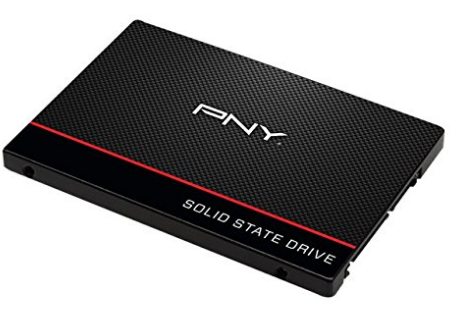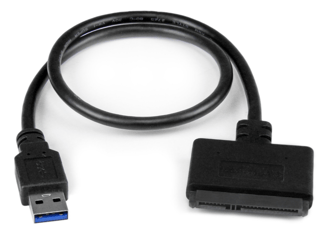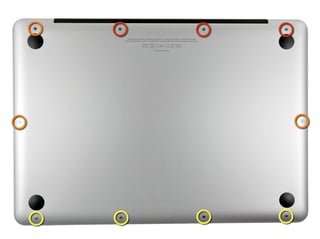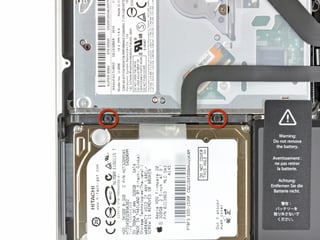I'm trying to figure out if my Mac's hard drive could be failing, or that it could be some other component or the HD cable.
After transporting my Mac about a week ago it started beachballing a lot. I mean a LOT, like every time I try to change the window or do anything, it will beachball from anywhere between 10 seconds and a few minutes. I was using Caffeine before to stop the laptop from falling asleep and I am afraid that maybe I left Caffeine on during the transport, which could have damaged the drive, but I am not sure.
The most notable thing is that any operation that involves the disk itself seems to be very very slow.
I tried DiskWarrior for example and it took a day and a half to rebuild my directories from status 8 to status 10, which didn't help the performance of the computer.
I also tried DriveGenius to scan for physical errors. It took about 12 hours to get to 26% (and this was not the "extented test") and found two "dubious areas", after which I cancelled it cause it would probably take another two days to finish.
EtreCheck indicated some HD errors in its SmartREPORT.
Downloads and copy operations (such as the back-ups that I did) will sometimes be fast and then become very slow and/or freeze for a couple of minutes. Sometimes they will then continue, sometimes not.
Booting is no problem even though slightly on the slow side, except in safe mode which I left for 45 minutes and the percentage bar went all the way until the end but it never booted up.
The HD doesn't make any weird noises. I haven't had any messages about possibly corrupted data.
I'm basically trying to figure out if I should go through the trouble of buying a new HD cable, or if I should just replace the HD immediately, or perhaps try to low-level format the disk and reinstall everything to see if that might get rid of possible bad blocks.
Specs: Macbook Pro Mid 2012 with El Capitan Apple Toshiba 500GB drive with 45GB free disk space Recently updated 8GB non-Apple RAM
I updated my important files - I do however not have a HD at the moment big enough to clone my entire disk.
smartctl -a disk0
Copyright (C) 2002-15, Bruce Allen, Christian Franke, www.smartmontools.org
=== START OF INFORMATION SECTION ===
Device Model: APPLE HDD TOSHIBA MK5065GSXF
Serial Number: X2NZCESBT
LU WWN Device Id: 5 000039 45440633e
Firmware Version: GV201B
User Capacity: 500,107,862,016 bytes [500 GB]
Sector Size: 512 bytes logical/physical
Rotation Rate: 5400 rpm
Form Factor: 2.5 inches
Device is: Not in smartctl database [for details use: -P showall]
ATA Version is: ATA8-ACS (minor revision not indicated)
SATA Version is: SATA 2.6, 3.0 Gb/s (current: 3.0 Gb/s)
Local Time is: Sun Nov 6 11:42:10 2016 CET
SMART support is: Available - device has SMART capability.
SMART support is: Enabled
=== START OF READ SMART DATA SECTION ===
SMART overall-health self-assessment test result: PASSED
General SMART Values:
Offline data collection status: (0x00) Offline data collection activity
was never started.
Auto Offline Data Collection: Disabled.
Self-test execution status: ( 0) The previous self-test routine completed
without error or no self-test has ever
been run.
Total time to complete Offline
data collection: ( 120) seconds.
Offline data collection
capabilities: (0x5b) SMART execute Offline immediate.
Auto Offline data collection on/off support.
Suspend Offline collection upon new
command.
Offline surface scan supported.
Self-test supported.
No Conveyance Self-test supported.
Selective Self-test supported.
SMART capabilities: (0x0003) Saves SMART data before entering
power-saving mode.
Supports SMART auto save timer.
Error logging capability: (0x01) Error logging supported.
General Purpose Logging supported.
Short self-test routine
recommended polling time: ( 2) minutes.
Extended self-test routine
recommended polling time: ( 167) minutes.
SCT capabilities: (0x003d) SCT Status supported.
SCT Error Recovery Control supported.
SCT Feature Control supported.
SCT Data Table supported.
SMART Attributes Data Structure revision number: 16
Vendor Specific SMART Attributes with Thresholds:
ID# ATTRIBUTE_NAME FLAG VALUE WORST THRESH TYPE UPDATED WHEN_FAILED RAW_VALUE
1 Raw_Read_Error_Rate 0x000b 100 100 050 Pre-fail Always - 0
2 Throughput_Performance 0x0005 100 100 050 Pre-fail Offline - 0
3 Spin_Up_Time 0x0027 100 100 001 Pre-fail Always - 2075
4 Start_Stop_Count 0x0032 100 100 000 Old_age Always - 11031
5 Reallocated_Sector_Ct 0x0033 100 100 050 Pre-fail Always - 0
7 Seek_Error_Rate 0x000b 100 100 050 Pre-fail Always - 0
8 Seek_Time_Performance 0x0005 100 100 050 Pre-fail Offline - 0
9 Power_On_Hours 0x0032 082 082 000 Old_age Always - 7379
10 Spin_Retry_Count 0x0033 253 100 030 Pre-fail Always - 0
12 Power_Cycle_Count 0x0032 100 100 000 Old_age Always - 8880
191 G-Sense_Error_Rate 0x0032 100 100 000 Old_age Always - 16387
192 Power-Off_Retract_Count 0x0032 097 097 000 Old_age Always - 1984
193 Load_Cycle_Count 0x0032 071 071 000 Old_age Always - 297692
194 Temperature_Celsius 0x0022 100 100 000 Old_age Always - 34 (Min/Max 12/46)
196 Reallocated_Event_Count 0x0032 100 100 000 Old_age Always - 0
197 Current_Pending_Sector 0x0032 100 100 000 Old_age Always - 0
198 Offline_Uncorrectable 0x0030 100 100 000 Old_age Offline - 0
199 UDMA_CRC_Error_Count 0x0032 200 200 000 Old_age Always - 13
220 Disk_Shift 0x0002 100 100 000 Old_age Always - 108
222 Loaded_Hours 0x0032 085 085 000 Old_age Always - 6352
223 Load_Retry_Count 0x0032 100 100 000 Old_age Always - 0
224 Load_Friction 0x0022 100 100 000 Old_age Always - 0
226 Load-in_Time 0x0026 100 100 000 Old_age Always - 303
240 Head_Flying_Hours 0x0001 100 100 001 Pre-fail Offline - 0
254 Free_Fall_Sensor 0x0032 100 100 000 Old_age Always - 1100
SMART Error Log Version: 1
ATA Error Count: 5
CR = Command Register [HEX]
FR = Features Register [HEX]
SC = Sector Count Register [HEX]
SN = Sector Number Register [HEX]
CL = Cylinder Low Register [HEX]
CH = Cylinder High Register [HEX]
DH = Device/Head Register [HEX]
DC = Device Command Register [HEX]
ER = Error register [HEX]
ST = Status register [HEX]
Powered_Up_Time is measured from power on, and printed as
DDd+hh:mm:SS.sss where DD=days, hh=hours, mm=minutes,
SS=sec, and sss=millisec. It "wraps" after 49.710 days.
Error 5 occurred at disk power-on lifetime: 7377 hours (307 days + 9 hours)
When the command that caused the error occurred, the device was active or idle.
After command completion occurred, registers were:
ER ST SC SN CL CH DH
-- -- -- -- -- -- --
84 51 01 c7 da f1 40 Error: ICRC, ABRT 1 sectors at LBA = 0x00f1dac7 = 15850183
Commands leading to the command that caused the error were:
CR FR SC SN CL CH DH DC Powered_Up_Time Command/Feature_Name
-- -- -- -- -- -- -- -- ---------------- --------------------
35 00 00 c8 d9 f1 40 00 00:13:08.384 WRITE DMA EXT
35 00 00 c8 d8 f1 40 00 00:13:08.382 WRITE DMA EXT
35 00 00 c8 d7 f1 40 00 00:13:08.378 WRITE DMA EXT
35 00 00 c8 d6 f1 40 00 00:13:08.376 WRITE DMA EXT
35 00 00 c8 d5 f1 40 00 00:13:08.374 WRITE DMA EXT
Error 4 occurred at disk power-on lifetime: 7370 hours (307 days + 2 hours)
When the command that caused the error occurred, the device was active or idle.
After command completion occurred, registers were:
ER ST SC SN CL CH DH
-- -- -- -- -- -- --
84 51 01 c7 1e f1 40 Error: ICRC, ABRT 1 sectors at LBA = 0x00f11ec7 = 15802055
Commands leading to the command that caused the error were:
CR FR SC SN CL CH DH DC Powered_Up_Time Command/Feature_Name
-- -- -- -- -- -- -- -- ---------------- --------------------
35 00 00 c8 1d f1 40 00 03:52:49.218 WRITE DMA EXT
35 00 00 c8 1c f1 40 00 03:52:49.216 WRITE DMA EXT
35 00 00 c8 1b f1 40 00 03:52:49.214 WRITE DMA EXT
35 00 00 c8 1a f1 40 00 03:52:49.212 WRITE DMA EXT
35 00 00 c8 19 f1 40 00 03:52:49.208 WRITE DMA EXT
Error 3 occurred at disk power-on lifetime: 7362 hours (306 days + 18 hours)
When the command that caused the error occurred, the device was active or idle.
After command completion occurred, registers were:
ER ST SC SN CL CH DH
-- -- -- -- -- -- --
84 51 01 0f ee e3 40 Error: ICRC, ABRT 1 sectors at LBA = 0x00e3ee0f = 14937615
Commands leading to the command that caused the error were:
CR FR SC SN CL CH DH DC Powered_Up_Time Command/Feature_Name
-- -- -- -- -- -- -- -- ---------------- --------------------
35 00 00 10 ed e3 40 00 01:37:09.282 WRITE DMA EXT
35 00 00 10 ec e3 40 00 01:37:08.756 WRITE DMA EXT
35 00 00 10 eb e3 40 00 01:37:08.232 WRITE DMA EXT
35 00 00 10 ea e3 40 00 01:37:07.708 WRITE DMA EXT
35 00 00 10 e9 e3 40 00 01:37:07.184 WRITE DMA EXT
Error 2 occurred at disk power-on lifetime: 7268 hours (302 days + 20 hours)
When the command that caused the error occurred, the device was active or idle.
After command completion occurred, registers were:
ER ST SC SN CL CH DH
-- -- -- -- -- -- --
84 51 01 af a8 74 40 Error: ICRC, ABRT 1 sectors at LBA = 0x0074a8af = 7645359
Commands leading to the command that caused the error were:
CR FR SC SN CL CH DH DC Powered_Up_Time Command/Feature_Name
-- -- -- -- -- -- -- -- ---------------- --------------------
35 00 00 b0 a7 74 40 00 03:45:55.590 WRITE DMA EXT
35 00 00 b0 a6 74 40 00 03:45:55.590 WRITE DMA EXT
35 00 00 b0 a5 74 40 00 03:45:55.589 WRITE DMA EXT
aa aa aa aa aa aa aa ff 03:45:55.582 [RESERVED]
35 00 00 b0 a4 74 40 00 03:45:45.580 WRITE DMA EXT
Error 1 occurred at disk power-on lifetime: 7259 hours (302 days + 11 hours)
When the command that caused the error occurred, the device was active or idle.
After command completion occurred, registers were:
ER ST SC SN CL CH DH
-- -- -- -- -- -- --
84 51 01 6f 14 54 40 Error: ICRC, ABRT 1 sectors at LBA = 0x0054146f = 5510255
Commands leading to the command that caused the error were:
CR FR SC SN CL CH DH DC Powered_Up_Time Command/Feature_Name
-- -- -- -- -- -- -- -- ---------------- --------------------
35 00 00 70 13 54 40 00 01:28:44.723 WRITE DMA EXT
35 00 00 70 12 54 40 00 01:28:44.721 WRITE DMA EXT
35 00 00 70 11 54 40 00 01:28:44.719 WRITE DMA EXT
35 00 00 70 10 54 40 00 01:28:44.717 WRITE DMA EXT
35 00 00 70 0f 54 40 00 01:28:44.713 WRITE DMA EXT
SMART Self-test log structure revision number 1
No self-tests have been logged. [To run self-tests, use: smartctl -t]
SMART Selective self-test log data structure revision number 1
SPAN MIN_LBA MAX_LBA CURRENT_TEST_STATUS
1 0 0 Not_testing
2 0 0 Not_testing
3 0 0 Not_testing
4 0 0 Not_testing
5 0 0 Not_testing
Selective self-test flags (0x0):
After scanning selected spans, do NOT read-scan remainder of disk.
If Selective self-test is pending on power-up, resume after 0 minute delay.




